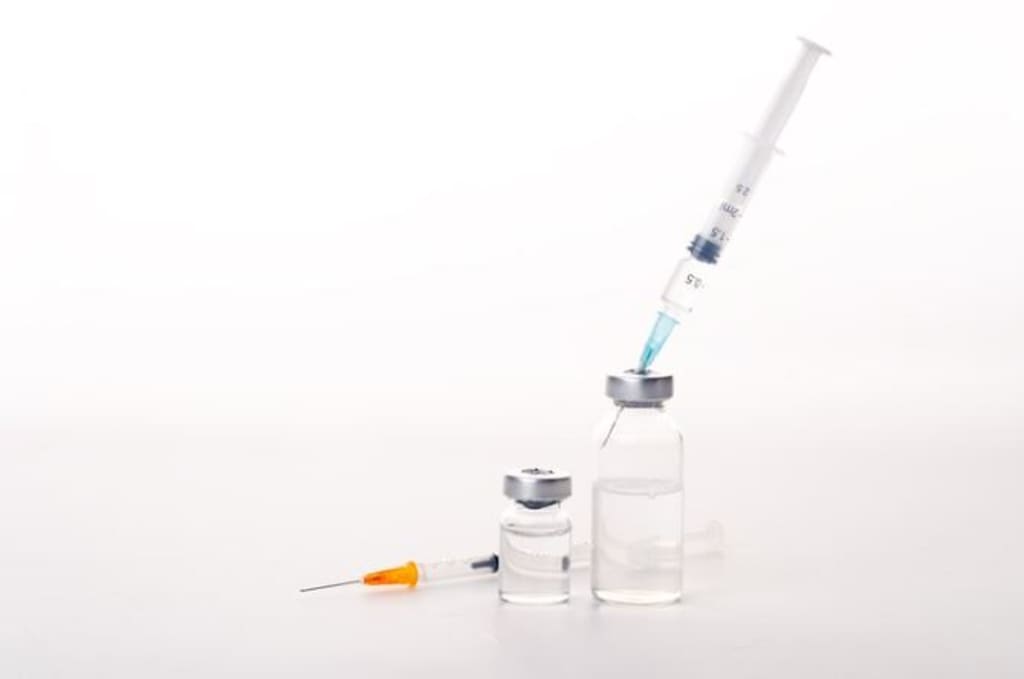How Vitamin B1 Injections Help with Various Health Issues and What Are the Risk Factors?
Vitamin B1 injections are an excellent approach to improving health while also targeting particular ailments such as energy, nerves, heart health, and digestion.

Vitamin B1, or thiamine, is an important B complex vitamin crucial in maintaining overall health and well-being. It is commonly obtained through vitamin B1-rich foods like peas, beans, lentils, cereals, bread, etc. Some individuals may benefit from Vitamin B1 injections to address specific health issues. Here's a detailed exploration of how Vitamin B1 injections can be beneficial for various health conditions:
- Energy Production and Metabolism
Vitamin B1 is vital to turning carbs into energy. It generates ATP, which our cells mostly run on like gasoline. Thus, obtaining some Vitamin B1 injections could provide a much-needed boost if you're feeling fatigued or low on energy.
- Nervous System Health
The proper operation of our neurological system depends on vitamin B1. It's important in synthesizing neurotransmitters like acetylcholine, which support neuronal signaling. If you are deficient in Vitamin B1, you may have tingling, numbness, or even more severe disorders such as Wernicke-Korsakoff syndrome or beriberi. Still, vitamin B1 injections help to maintain nerve function and prevent these problems.
- Cardiovascular Health
Maintaining healthy blood vessels and a healthy heart is vital, and vitamin B1 can help with that. It increases blood flow and helps the operation of our heart muscle. It also aids in the creation of red blood cells, which oxygenate our body. Therefore, enough vitamin B1 helps to keep our ticker in good health and reduces our chance of heart disease.
- Digestive Health
Vitamin B is essential for a functioning digestive system. It aids in the production of hydrochloric acid by the stomach, which is required to break down meals and extract nutrients. Vitamin B1 injections can be quite helpful for those with digestive problems or difficulty absorbing nutrition.
- Mental Health and Cognitive Function
Maintaining our brain's sharpness and clear thinking is vital, and vitamin B1 helps with that, too. It produces acetylcholine, a neurotransmitter linked to learning and memory. Thus, enough vitamin B1 can help focus, concentration, and mental health.
Considerations for Vitamin B1 Injections
Vitamin B1 injections can help with energy production, nervous system function, cardiovascular health, digestive health, and mental clarity. But before you start taking them, consult with a healthcare professional. They can determine if you have a deficiency and prescribe the appropriate dosage and frequency for your injections. It's worth noting that Vitamin B1 injections are generally safe when given by a trained healthcare professional. However, like any medical treatment, there may be dangers and side effects.
Vitamin B1 injections are an excellent approach to improving general health while also targeting particular ailments such as energy, nerves, heart health, digestion, and brain sharpness. Understanding how Vitamin B1 supports these vital activities allows you to make informed decisions about including Vitamin B1 injections in your health and wellness regimen, all while under the supervision of a medical expert.
What are the Risk Factors?
Now let's talk about shots of Vitamin B1 (also called thiamine). They can be pretty helpful, especially for people who are lacking something. It's important to know about the risks and side effects before you start, though. You can use them safely and well if you know these things.
The first thing we need to do is talk about allergic responses. There is a small chance that vitamin B1 injections will cause an allergic response. Now, these effects can be very mild or very bad. You may get hives, start to itch, see some swelling, or even have trouble breathing. Anaphylaxis is a dangerous allergic reaction that can be life-threatening, but it only happens very rarely. It is very important to get medical help right away if you think you might be having an allergic reaction.
Let's talk about something a little more common: reactions at the injection spot. The area where the shot was given might hurt, turn red, or swell up for some people. Not a big deal most of the time; it goes away on its own after a while, but it can be annoying.
If you take too much Vitamin B1, it can throw off the balance of the other B vitamins in your body. You see, these B vitamins all work together. If you get too much of one, it can change how the others work and get absorbed.
Some medications or medical conditions may not benefit from vitamin B1 injections. If you are on specific diuretics or chemo, you should discuss these injections with your doctor beforehand.
Usually safe and quite beneficial, Vitamin B1 injections come last after all else is said and done. To reduce any dangers and ensure they are appropriate for your health, however, they should be used under the direction of a doctor.
About the Creator
Enjoyed the story? Support the Creator.
Subscribe for free to receive all their stories in your feed. You could also pledge your support or give them a one-off tip, letting them know you appreciate their work.





Comments
There are no comments for this story
Be the first to respond and start the conversation.